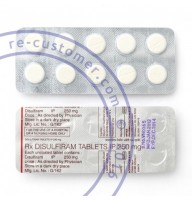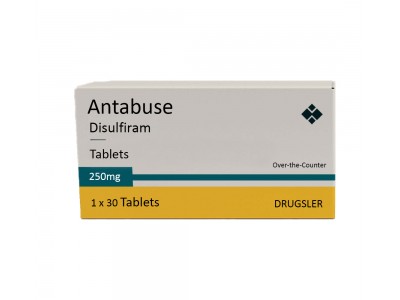What Is Antabuse (Disulfiram)?
Antabuse, also known as Disulfiram, is a medication commonly used to help people manage alcohol dependence. It works by interfering with the metabolism of alcohol, causing unpleasant reactions if alcohol is consumed. These reactions serve as a strong deterrent for people trying to maintain sobriety. However, mixing alcohol with Antabuse can lead to severe physical reactions that can be dangerous and life-threatening. In this article, we will discuss the risks and effects of drinking alcohol while on Antabuse.
What Happens When You Drink Alcohol on Antabuse?
When alcohol is consumed while taking Antabuse, a chemical reaction occurs in the body that causes intense symptoms. This reaction is caused by the inhibition of the enzyme acetaldehyde dehydrogenase, which is necessary to break down alcohol in the body. As a result, acetaldehyde, a toxic byproduct of alcohol metabolism, builds up in the system.
Side Effects of Drinking Alcohol with Antabuse
The side effects of drinking alcohol with Antabuse can be severe and include:
- Nausea
- Vomiting
- Flushed skin
- Rapid heartbeat
- Low blood pressure
- Difficulty breathing
- Headache
- Chest pain
- Blurred vision
- Confusion
Antabuse Overdose Symptoms with Alcohol
If a person consumes a significant amount of alcohol while on Antabuse, the symptoms of the reaction can be more intense. In extreme cases, an overdose can occur. Antabuse overdose symptoms with alcohol may include:
- Severe alcohol poisoning with Antabuse
- Seizures
- Loss of consciousness
- Cardiac arrest
- Death
Can You Drink Alcohol on Antabuse?
No, it is highly recommended not to drink alcohol while taking Antabuse. The purpose of the medication is to act as a deterrent by causing unpleasant and potentially harmful reactions when alcohol is consumed. Even small amounts of alcohol can trigger these reactions, making it crucial to avoid alcohol during treatment.
Disulfiram Alcohol Reaction: The Risks
The Disulfiram alcohol reaction can cause significant distress and may be dangerous for individuals who attempt to drink while on the medication. The reaction may occur within 10 minutes to several hours after alcohol consumption, and the severity of the symptoms can vary depending on the individual’s sensitivity to the drug. The reaction can even lead to hospitalization in some cases, especially if the symptoms worsen.
Antabuse and Alcohol Warning
There is a clear Antabuse and alcohol warning provided with the medication to help users understand the serious risks of consuming alcohol while taking it. This warning is crucial to prevent severe reactions and encourage compliance with treatment for alcohol dependence.
Conclusion
While Antabuse is an effective tool for helping individuals overcome alcohol dependence, drinking alcohol while on the medication can result in severe side effects. If you are taking Antabuse or considering it as a treatment option, it is essential to understand the risks associated with consuming alcohol. Always follow your healthcare provider's instructions and avoid alcohol to ensure the best possible outcome for your recovery.

